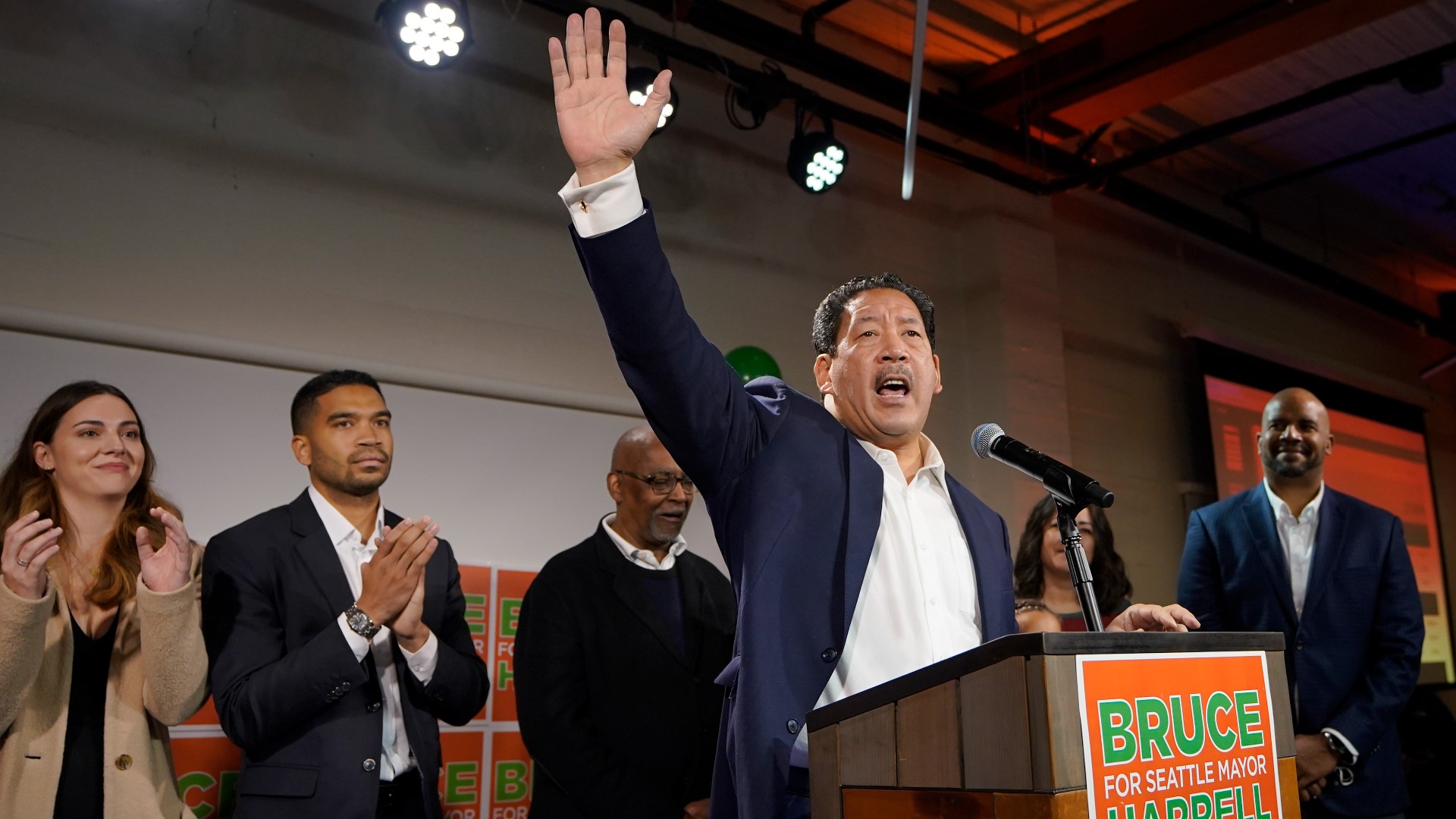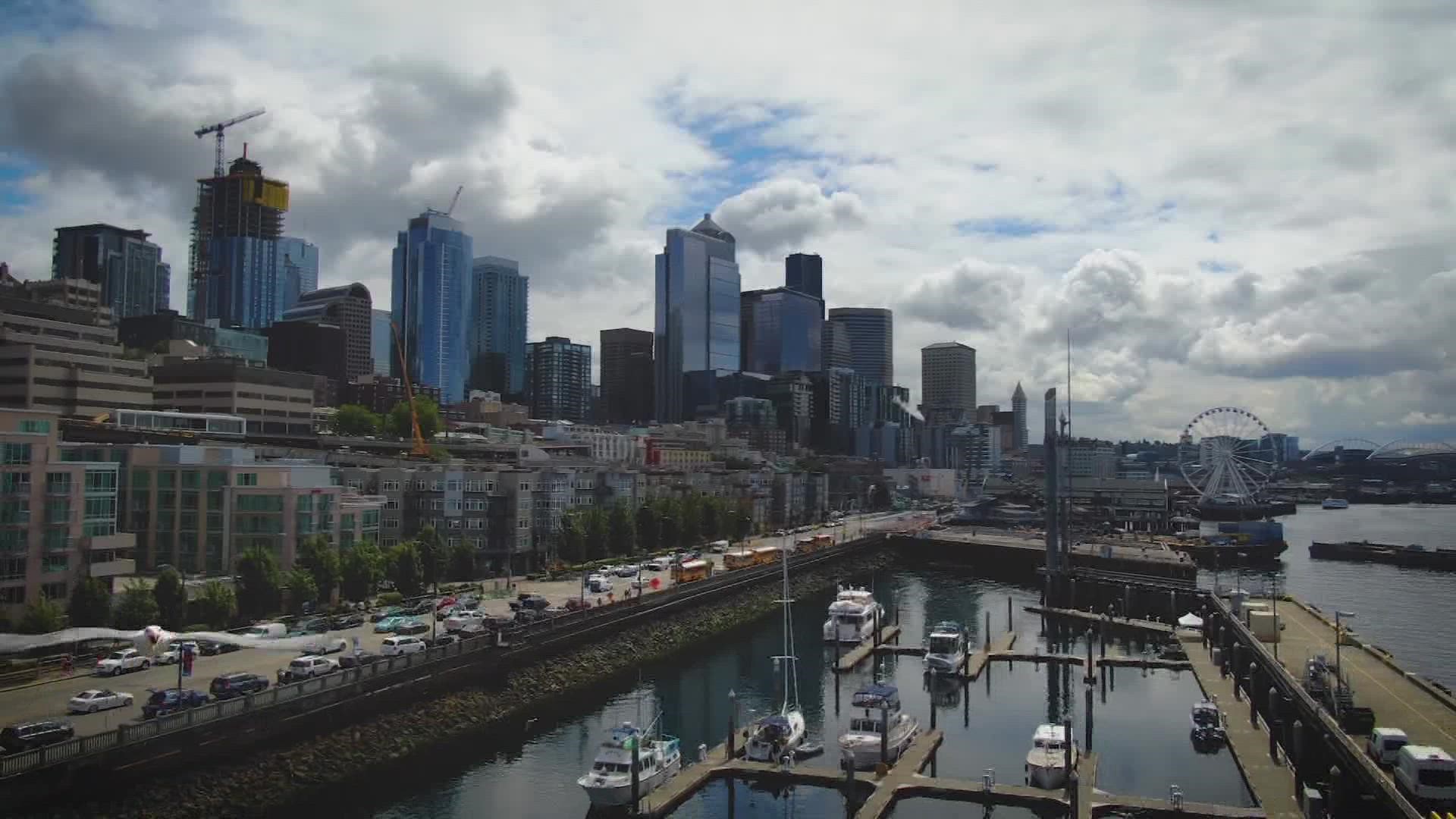SEATTLE — Moderate and pro-business interests signaled victory on Wednesday, after what appears to be a sharp shift by the Seattle electorate.
"[It] was a rejection of the divisive politics of our city," said Downtown Seattle Association President Jon Scholes, basking in the returns from Tuesday night. "Downtown and Seattle are back open for business."
That's because the gaps in major races are markedly wider than previous elections.
Bruce Harrell is the mayor-elect, with a nearly 30-point gap between him and challenger and current City Council President Lorena Gonzalez. The latter was a proponent of cutting the police budget by half in the summer of 2020 and is considered the more progressive of the two.
Harrell ran on restoring public safety and eliminating public homelessness, key parts of his platform and reiterated Tuesday night.
"We're going to be very aggressive at moving people out of parks, out of playgrounds and into housing," he said.
The numbers didn't shift much after Wednesday ballot count, with more substantial "ballot drops" coming on Thursday and Friday. Still, when compared even with the elections of 2017 and 2019, the gaps appear unsurmountable on other key races as well. Sara Nelson maintained close to a 20-point lead on self-described socialist Nikkita Oliver in an open council race. Ann Davison continues to lead Nicole Thomas-Kennedy by close to 18 points in the city attorney's race. Nelson and Davison campaigned on increasing public safety.
Gonzalez didn't issue a statement on Wednesday, but did say on election night that typically late voters will lean her way and "those votes haven't been counted." That may be true, but recent elections have only shown about a 9-12 point shift to the progressive votes that get counted on a Thursday or Friday.
It sets the stage for a changing dynamic on the city council, too. Outgoing Mayor Jenny Durkan often sparred with the council over the budget, policing and dealt with a supermajority of progressives that would threaten overturn vetoes, and did.
Nelson would join a more moderate block of Debora Juarez, and Alex Pedersen. Councilmembers Dan Strauss and Andrew Lewis represent two districts, Ballard, and downtown, which have been hardest hit by the pandemic and where neighbors have been the loudest over public safety concerns. If you factor in a wildcard recall election of Councilmember Kshama Sawant, more moderate Seattleites suggest the election could prove to be a mandate, with a council that is more aligned with the platform shared by Harrell.
"This election," Scholes said, "is really about we want to see some progress in our city."


